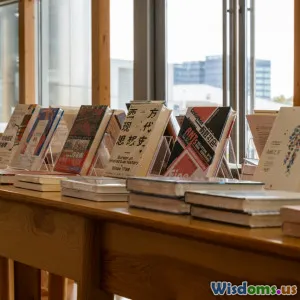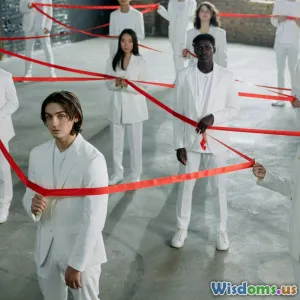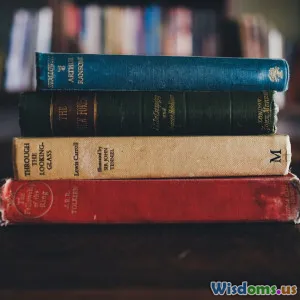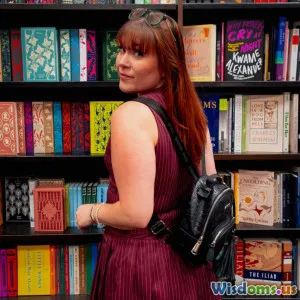
Are Literary Awards Still Relevant for Readers Today
15 min read Explores the continued impact and influence of literary awards on modern readers and book selections. (0 Reviews)
Are Literary Awards Still Relevant for Readers Today?
Literary prize season once added a distinct thrill to the book world, sending ripples through publishers, bookstores, libraries, and reading groups alike. From the Nobel Prize to the Booker or Pulitzer, these awards have long functioned as powerful signposts—implying excellence, stirring debate, and suggesting what should be on our nightstands next. Yet as reading habits change, the breadth of available books has widened, and social media now champions its own darlings, the question feels especially urgent: Do literary awards still matter for the everyday reader, or are they relics of a gate-kept past?
What Purpose Have Literary Awards Traditionally Served?

Literary awards have always been designed to recognize, celebrate, and promote standout writing. Whether honoring fiction, nonfiction, poetry, or a debut author, their goal is dual: reward talent and guide readers' attention. The Pulitzer Prize, for instance, has launched novels like Toni Morrison's Beloved into lasting prestige, while the Hugo Awards have highlighted vibrant voices in science fiction since 1953.
Awards also function as trusted curators. For readers overwhelmed by millions of titles, a shortlist or winner’s badge can suggest, “Here’s something special.” When Hilary Mantel’s Wolf Hall captured the Man Booker in 2009—and its sequel, Bring Up the Bodies, repeated the feat three years later—readership boomed and her historical trilogy became forcibly present in bookstore displays worldwide.
At their best, these prizes have challenged literary trends, promoted voices from underrepresented backgrounds, and created new classics. Consider the impact of the National Book Award’s recent efforts to include more works in translation or from indie presses. For those new to serious reading, literary awards still offer a helpful map of quality and contemporary relevance.
The Changing Landscape of Reading Habits

Today’s readers no longer have to depend on gatekeepers. Algorithms curate book recommendations, while platforms like Goodreads, BookTok, and Instagram foster vibrant communities where grassroots buzz can outshine establishment acclaim. In 2021, Colleen Hoover’s It Ends With Us, absent from any major prize consideration, topped charts because of TikTok endorsements. The triumph wasn’t mediated by critics but by direct reader enthusiasm.
Ebooks and audiobooks further democratize access, untethering book choices from traditional marketing and accolades. Self-publishing giants, including Andy Weir (The Martian) and Amanda Hocking (best-selling paranormal romance), found audiences without critical infrastructure—but via reader-driven word of mouth instead.
The effect is twofold: while literary prizes retain prestige, their authority shrinks among a public empowered to champion its own favorites. For many, personal discovery now rivals institutional endorsement as a trustworthy guide.
Do Awards Reflect Reader Tastes or Critical Standards?

Awards inevitably spark discussion because their choices may diverge from general taste. Take the Booker Prize’s infamous 2011 shortlist, labeled “readable novels,” which led to criticism that the standard had been lowered in pursuit of accessibility. On the other end, Ulysses-level experimental works sometimes triumph, puzzling mass market readers—see Marlon James’s Booker-honored A Brief History of Seven Killings, lauded for its innovation but demanding to read.
Critics argue this creates a gulf: winning doesn’t guarantee popularity. In some years, the impact is surprisingly muted. After Less won the Pulitzer in 2018, sales did spike, but most best-seller lists remain dominated by thrillers, romance, or fantasy seldom seen on prize lists.
Nonetheless, awards can influence the literary canon. Haruki Murakami, often tipped for the Nobel, became widely read beyond his cult following after winning the Jerusalem Prize. In 2020, Douglas Stuart’s Shuggie Bain—published by a small press—became a literary phenomenon only after its Booker victory pushed it into mainstream awareness. Whether or not prizes match the market, their endorsements can change the fate of books.
Accessibility and Representation: Whose Voices Get Awarded?
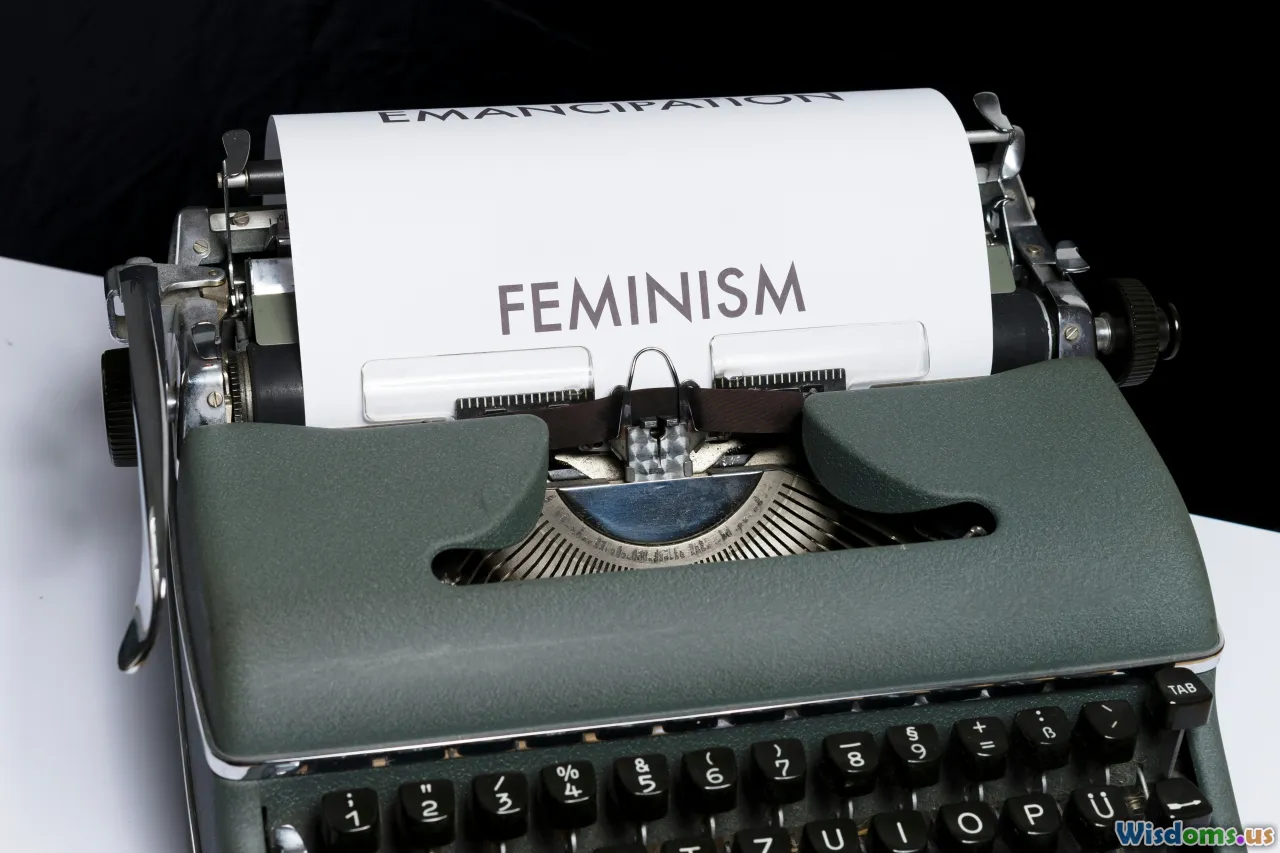
Historically, literary prizes have concentrated on Western, English-language authors—often men. Not until 1991 did a black woman, Nadine Gordimer (albeit South African), win the Nobel Prize. Major American prizes only gradually began to reward LGBTQ stories, women writers, and other marginalized voices.
Positive change is underway. Women’s fiction prizes (such as the Women’s Prize for Fiction), the Lambda Literary Awards (for LGBTQ+ literature), and newer prizes for translation and global voices counteract prior imbalances. The Booker International, for instance, produced surges in readership for Han Kang (The Vegetarian), Jokha Alharthi (Celestial Bodies), and Olga Tokarczuk (Flights), exposing readers to new cultures and experiences.
For attentive readers seeking fresh narratives, prize lists spotlight diversity and social relevance in ways bestseller lists rarely do. Awards effectively function as corrective lenses, urging readers to try compelling stories from overlooked corners of literary culture.
The Marketing Power: Boost or Hype?
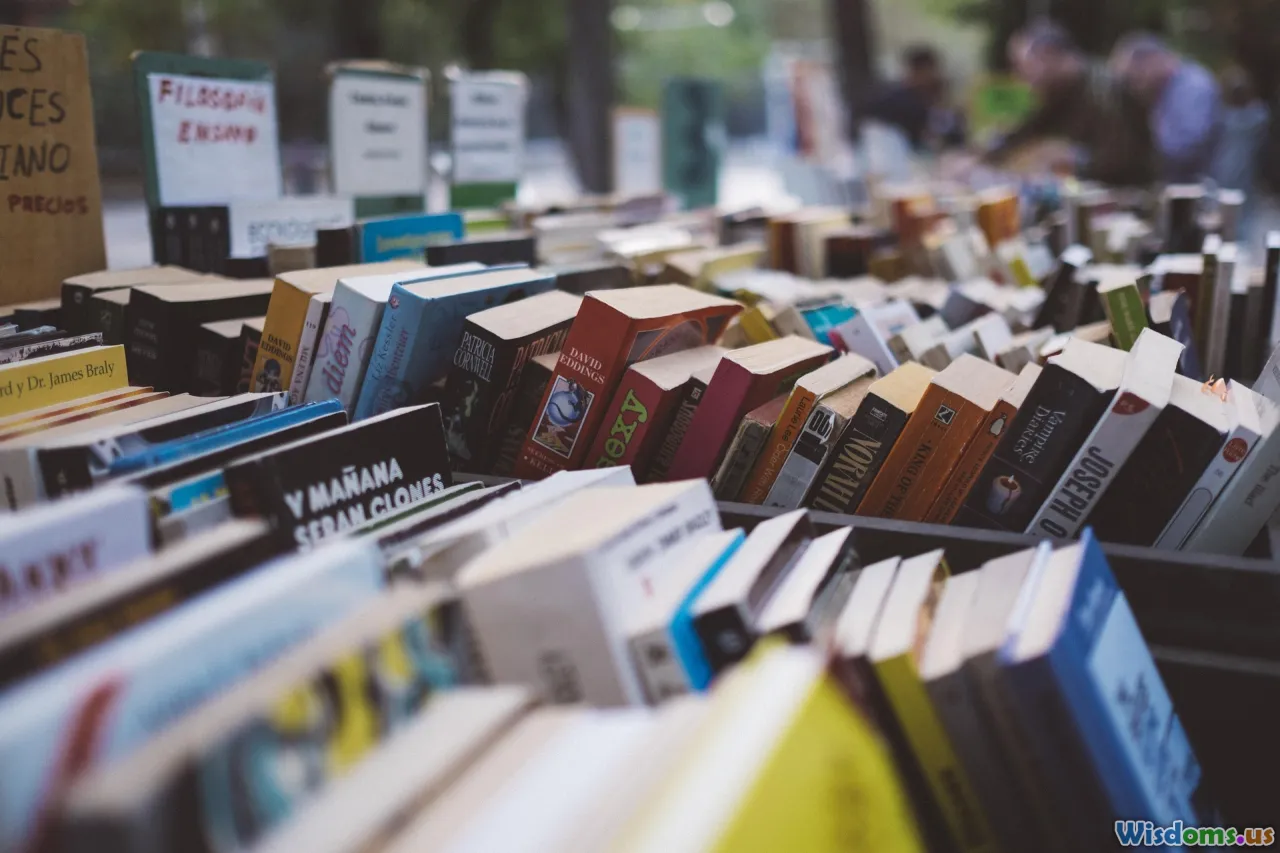
Publishers and retailers capitalize on award buzz—placing stickers on covers, staging prominent displays, and organizing social media campaigns. In some cases, accolades turn middling sellers into major hits. After winning the Pulitzer, sales of Viet Thanh Nguyen’s The Sympathizer increased fourfold. The Women’s Prize brought Madeline Miller’s Circe durable visibility, elevating it from literary sleeper to essential contemporary reading.
Yet not all prize winners translate into sales bonanzas. Literary fiction often beats the odds, but poetry and short stories—even when highly decorated—rarely become commercial phenomena. Surveys by publishers consistently show that while prize announcements sway purchases, this influence diminishes rapidly in genres outside literary fiction. Commercial thrillers, romance, and YA hits develop independent of prizes, propelled instead by fandoms, adaptations, and viral hype.
Still, for book clubs, libraries, and readers scrambling for trusted recommendations, the glow of a recent award can provide welcome direction and conversation starters.
Reader Recommendations vs. Award Shortlists

Book lovers increasingly turn to peer recommendations—friends, book clubs, online forums—as curatorial aids. Platforms such as Reddit’s r/books, Bookstagram, and BookTube draw millions of followers who dissect new and classic titles alike, often bypassing the annual prize circuit. For example, Emily Henry and Taylor Jenkins Reid became literary stars largely through TikTok virality and enthusiastic reader-to-reader promotion, not official accolades.
Nevertheless, award lists retain cachet among certain audiences. Many use them as prompts for annual reading challenges—"Booker shortlist blitz," "Pulitzer shelf," or "Nobel project also." Libraries and bookstores structure displays and events around recent longlists to rope in curious readers.
A practical approach might be blending both. Draw on award lists to explore the literary landscape, then take peer recommendations for guaranteed page-turners and personal favorites outside the mainstream spotlight.
Literary Awards as Gatekeepers: Still Useful in the Digital Age?

The term “gatekeeper” is often thrown around pejoratively in discussions of literary prizes. In the past, critics, juries, and institutions wielded the authority to declare what was “most important” in the literary canon. But in the era of digital abundance, do we still need such tastemakers?
While democratized platforms diversify the book conversation, literary awards deliver critical context and recognition. They champion riskier, quieter, or more challenging works that might otherwise vanish in market-driven or algorithmically determined feeds. Prix Goncourt transformed Hervé Le Tellier’s playful, genre-bending The Anomaly into an international bestseller; similarly, the International Booker put translated fiction—often a niche interest—on global radars.
Furthermore, well-curated shortlists can mitigate the acceleration and surface-level patterns of the online reading world. They invite attention to craft, originality, and substance, offering a slower yet potentially richer reading experience when fast trends or meme books wane.
Practical Tips: Using Prize Lists to Enhance Your Reading Life

Looking to make awards work for you? Here’s how:
-
Explore backlists, not just winners – Shortlists and runners-up often house gems. If the main winner’s style doesn’t suit, adjacent nominees might surprise you.
-
Use prizes to broaden your horizons – Diversify genres, settings, and themes. International, translation, and debut awards spotlight under-the-radar stories for adventurous readers.
-
Compare prize lists and hype cycles – Check overlap between acclaimed and popular titles—sometimes, you’ll find the year’s definitive book glowing at both intersections (e.g., Delia Owens’s Where the Crawdads Sing enjoying both word-of-mouth and strong accolades).
-
Embrace themed reading challenges – Let annual shortlists or longlists guide your next several months of reading. Many book clubs follow Booker or National Book Award cycles, making selections more interactive and discussion-rich.
-
Beware of bias – All prizes come with juries, with potential for cultural, demographic, or personal bias. Don’t abandon personal curiosity and taste; let awards supplement your journey, not replace it.
The Evolving Role of Literary Prizes: From Prestige to Participation

In recent years, there’s been a shift from passive veneration toward public engagement. Reader-voted prizes (like the Goodreads Choice Awards) place power directly in readers’ hands, sometimes countering or complementing traditional critical picks. The Desmond Elliott Prize, Booker Foundation, and National Book Awards have all emphasized public programming—panels, community reads, and online conversations.
Some festivals now invite book bloggers, Instagrammers, and BookTubers to jury roundtables right alongside academics. These moves mark a transformation toward participatory enthusiasm, allowing readers to feel invested in the fate—and meaning—of major awards.
As boundaries blur, literary prizes can become gathering points: not just laurels for the few, but opportunities for dialogue, exploration, and renewed excitement about what's possible in the book world.
The shift is more evolutionary than existential. Awards now overlap with the multitude of ways readers make meaning: social media trends, retail recommendations, library staff picks, and community reads. For curious and discerning readers, this fusion is an invitation—not to shut out any single source, but to enjoy the rich tapestry of acclaim, personal discovery, and passionate conversation that flourishes wherever great books find their audience.
Even in a world saturated with opinions and abundance, the bright, challenging, sometimes controversial presence of literary awards remains a beacon. Perhaps less exclusive than before, but, for many, still wonderfully relevant.
Rate the Post
User Reviews
Popular Posts










